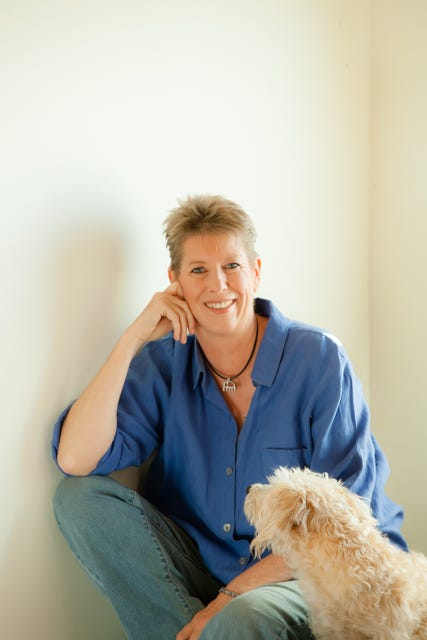
Slow down, you move too fast….
March 24, 2024 / Full Moon
Many years ago I had the blessing of being on the island of Bali for almost a month. It was my first attempt at being a ‘real anthropologist,’ a way to cap off the completion of graduate studies in cultural anthropology. I was in Indonesia for personal rather than professional reasons, but even so it was a good opportunity to try out my new skills of participating in and observing culture.
I found a modest but lovely homestay just outside of Ubud, and took walks every day through nearby villages, fields, and rice paddies. Once in a while I’d get adventurous and hop on a bemo (mini bus) to go a little further afield. Everywhere I went, I chatted with people as best as I could with the little bit of bahasa Indonesia that I had picked up and the little bit of English they knew. One young man who seemed to have the job of hanging out and watching over his family’s rice fields would greet me every day and say, with a smile, “Jalan jalan.” I asked him what that meant, he laughed and made a walking motion with his fingers, “Just cruising!” I got it that he thought my job was to meander through the fields every day. Sure, why not?!
One of the first things I began to notice was how the Balinese related to time in a very different way than the Western/U.S. culture I was coming from. There was a distinct lack of rushing and frenzy, a casualness around when things would happen (bus schedules? ha, forget about it!), and a delightful phrase to explain all this: jam karet, which means “rubber time.”
I watched a road construction project unfold across from where I was staying over the span of a couple of weeks. It was fascinating to notice how there was really no strict separation between ‘work’ time and ‘break’ time – the crew would work for a little while, then one of their family members would show up with some food and they’d stop and enjoy that for a while, then it would be time for a religious ceremony which they’d do right there in the street, then another family member would come by and there’d be more laughter. Eventually work would resume. Maybe. Nobody was clocking in and out, no one was keeping track of start and end times. It all seemed to work out just fine.

After nearly a month of being in this way of relating to time, all this rubbed off on me. My external and internal pace had slowed down by many degrees. When I returned to the U.S., I had a bad case of reverse culture shock and was horrified by what we do to time.
It actually felt quite violent. It was especially evident in the language we so often use: Let’s kill some time. I want to spend time with you. Don’t waste time. Time is money. I longed for island life and the gentle way of being in time with each other, rather than trying to make people fit into small boxes of time.
I’ve thought about time a lot since then, and what it means to slow down, and what are the consequences of staying in fast mode. Did you ever see the film Changing Lanes with Samuel Jackson and Ben Affleck? It’s a great exposition of all the painful karma that comes when we literally speed through life.
I believe so much of the speeding is driven by our perception of time as a limited commodity. What do you think?
In the movie, both characters are driven by a sense of desperation. Affleck’s character is a young, ambitious lawyer, who can’t be bothered with the process necessary to report the car accident that has brought him into an encounter with Jackson’s character. From that point on, the choices they each make intersect in ways that make both their lives hell. Along the way, what’s been lost is any sense of morals or values.
But here’s the thing – going fast isn’t necessarily the culprit. I think of the Zen practice of interspersing fast and slow walking meditation (kinhin). The practice is to bring the same focused state of mindful awareness to the faster pace.
The real culprit is not having intentionality when we enter into an action, no matter what speed we’re operating at. It tends to be easier to remember and embody intention when we go slow or start out slow. But it’s possible to carry that intention into a faster pace as well.
What is intentionality? To me, it’s having an understanding of what’s truly important to us, what it is we value. And then noticing how the way we choose to inhabit time does or doesn’t reflect those priorities.
We live in times that feel urgent. In a recent article in The Nation, Michelle Alexander wrote:
We haven’t learned yet and time is running out. The clock is ticking on our democracy, on the climate, and on our hopes for a truly just peace in Gaza and beyond. As King said at Riverside Church, there is such a thing as being too late.
She goes on to quote Martin Luther King, Jr.’s, 1967 speech at Riverside Church:
We are now faced with the fact that tomorrow is today. We are confronted with the fierce urgency of now. In this unfolding conundrum of life and history there is such a thing as being too late…. We may cry out desperately for time to pause in her passage, but time is deaf to every plea and rushes on. Over the bleached bones and jumbled residue of numerous civilizations are written the pathetic words: ‘Too late.’
So here we are, positioned at a point in history that truly is urgent, where action is required – and yet we need to take care that our actions are not driven by a sense of fear and scarcity which may result in more harm, even if that was not our intention. How do we do this?
Here are a few beginning suggestions on how to heal our relationship with time…
Give yourself the gift of a consistent contemplative practice – it might be sitting meditation, or yoga, or singing, or gardening, or something else. Whatever it is, do it wholeheartedly and with the intention to grow your own capacity to live in this world with wisdom and kindness. More on this in next week’s post…
Notice things you tend to multi-task, and experiment with separating them and doing just one thing at a time. Feel the difference when you naturally slow down as a result of not trying to do two (or more!) things at once. For me, it’s eating and looking at social media or the news at the same time. I know – not good! But it’s a habit I’ve gotten into and with some degree of kindness toward myself, I’d like to unravel those two things.
Notice your language around time – are you using metaphors that make time into a limited commodity, rather than a process to be in? I know it may sound a bit silly, but language actually does shape our perspective on the world. Try this out for a week and let me know what you discover.
I’d love to hear your thoughts on this. How do you relate to time? How have you found ways to be in time that feel more nourishing for you? If you’re a reader from a culture that has a more wholesome way of relating to time, I’d love to hear your voice!
New Substack: Postcards from New Mexico!
As if one Substack wasn’t enough, I’ve added a second: Postcards from New Mexico, bringing you gorgeous photos, stories, history, and culture from my corner of the world. Postcards delivered every Sunday — enjoy it with your morning coffee!
How to appreciate a writer…
If you enjoy my writing and want to support my ability to spend more time doing it, here are a few suggestions:
Become a paid subscriber or make a one-time donation. All the writing on this site is freely offered, there are no paywalls here. Your paid subscription (which means you’ll receive my posts in your email) and your donations are a meaningful way to support my livelihood as a writer.
Buy my book, Work That Matters: Create a Livelihood that Reflects Your Core Intention and/or tell others about it.
“Like” this post by tapping the heart icon, share it on Substack Notes or other social media, and/or send to a friend.
Thank you — I truly appreciate your support, and so does Lucy the rescue dog!






I so appreciate this post! I've been having some similar inquiries lately, trying to slow my life down since I moved to Vancouver Island and trying to be intentional about how I relate to time. Have you read the book Saving Time by Jenny Odell? I recommend it. She takes a deep dive into our understanding of time and how we've allowed capitalism to shape it.
We had a very similar experience to yours when we first arrived in Costa Rica, it was incredibly jarring for about 72 hours, and then incredibly liberating. I find the subjective nature of time eternally fascinating ;) it's especially fun when I manage to stop myself from subscribing to the idea that it's linear, and that I have to believe in it. Beautiful practice suggestions around language, thank you for that, Maia.